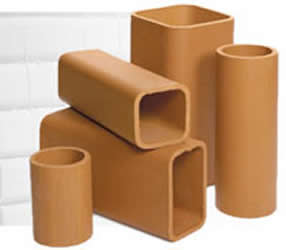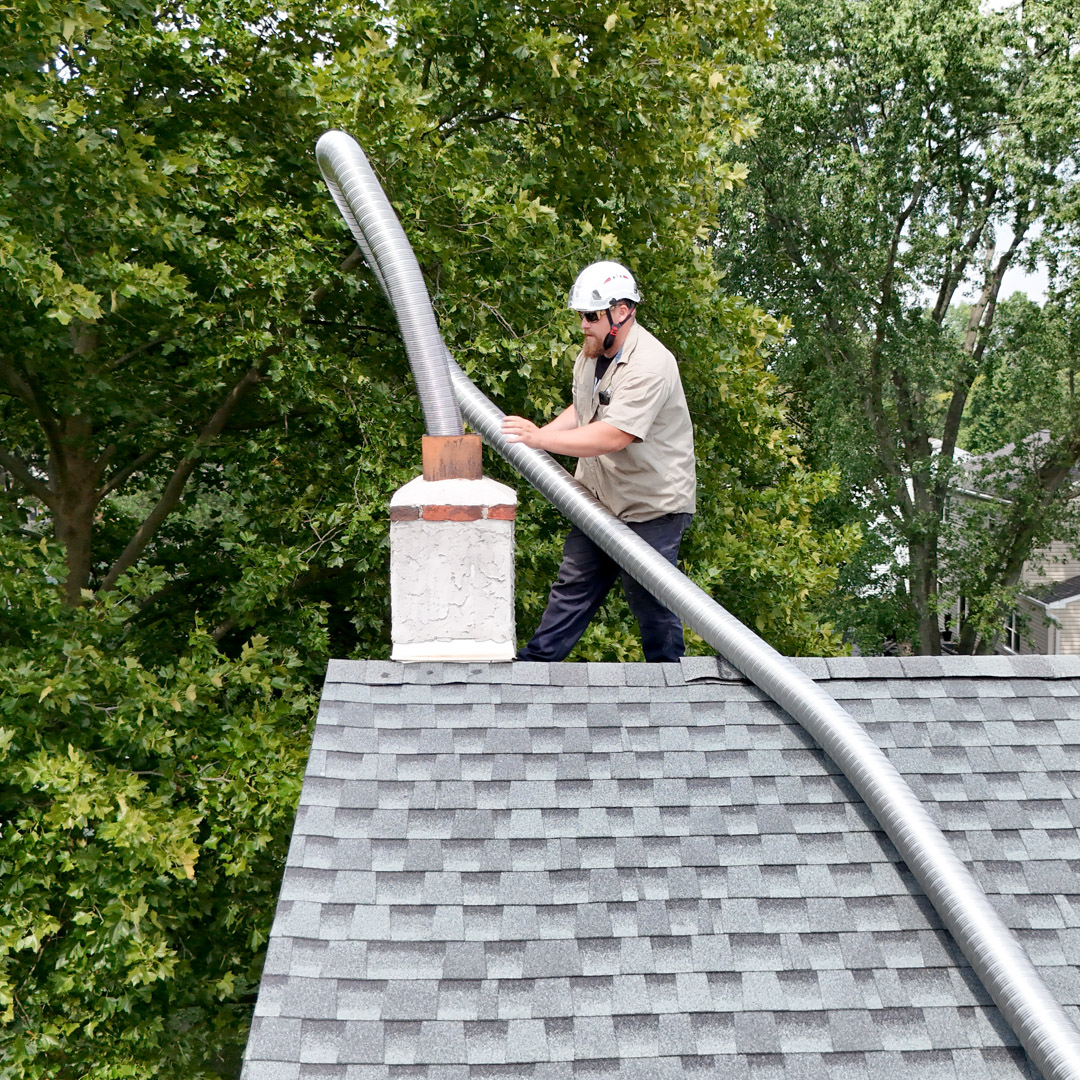Types of Chimney Liners
Although it may not seem like much, a chimney liner is a vital part of any chimney. They help guide combustion byproducts made by burning gas, oil, or wood away from the home while also protecting the flue. Chimney liners are not mandatory in all states but are strongly recommended for safety and better performance. They are available in three main types: clay tiles, metal, and cast-in-place.
 Clay Tile Chimney Liners
Clay Tile Chimney Liners
Advantages
- Inexpensive
- Readily available
- Work well in properly maintained chimneys
- Last for a long time – up to 50 years.
- Work with all types of fuel.
Disadvantages
- Since they are ceramic, they cannot rapidly absorb and evenly distribute heat during the rapid temperature rise that occurs with chimney fires. This can cause the flue tiles to crack and split apart.
- Tiles cannot adequately contain the liquid combustion byproducts that are produced by modern gas appliances.
- Air can get caught between tiles and may affect the draft in the chimney.
Cast-in-Place Chimney Liners
Advantages
- Lightweight
- Installed inside the chimney for a smooth, insulated passageway for the flue gases.
- Can improve structural integrity of aging chimneys.
- Are permanent liners suitable for all fuels.
- Provide good insulation and higher temperatures within the chimney.
- Can last a long time – up to 50 years in some cases.
- Ideal for oddly-shaped or narrow chimneys.
- Resists heat, acids, and condensation.
Disadvantages
- Difficult process to install.
Metal Chimney Liners
Advantages
- Work in most chimneys. (Aluminum liners work with gas appliances only.)
- Available in two forms: flexible and rigid. (Steel liners come in round, oval, and rectangular shapes while aluminum liners are only available in round shapes.)
Insulation can be used in addition to the liner. - Best option for existing chimneys without liners or replacement liners.
Disadvantages
- Corrosion when the correct alloy is not used for the type of fuel that is burned. (High grade steel is more expensive but does resist corrosion and features a higher temperature rating.
Resources: CSIA, Sweepy Stories, SFGate









